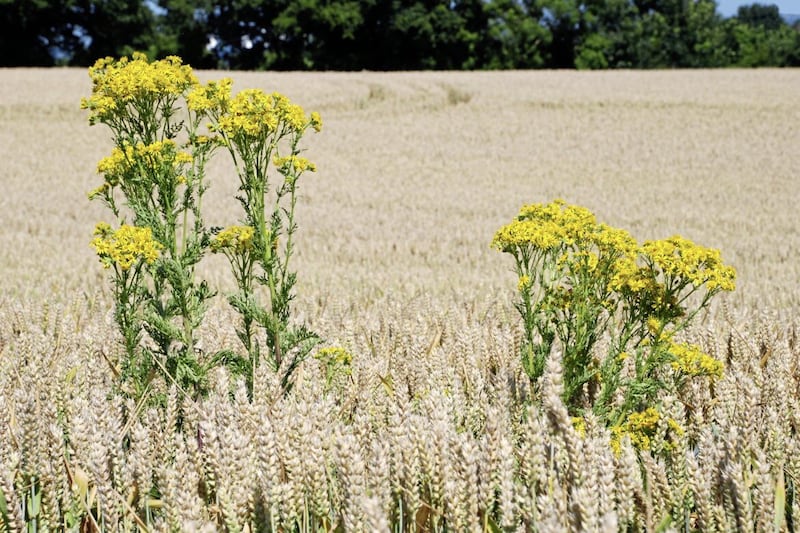It is a very old human truth that the world is experienced as beautiful and wonderful, but at times also as frightening and even terrifying. If everything on earth were either very good or very bad, we could probably understand the world better and be either convinced optimists or convinced pessimists.
But what makes our situation so difficult to understand is the strange mixture of good and evil that can be found everywhere in the world and in every single person. In fact, human life looks a bit like the situation evoked in the well-known parable in St Matthew's Gospel (13:24-30), about the field in which not only wheat but also weeds (or 'darnel' in another translation of the original term) appear.
Given that this is the way the world is, it is hardly surprising if the desire to get rid of evil once and for all in order to let good alone prevail can seem so attractive. But if we were ever to be tempted by such an ideal, we should maybe first ask ourselves whether, from a Christian perspective, the most important demand of Christianity is in fact that we should uproot, once and for all, the 'weeds' – that is to say, the evil – that everyone can see is present in the world.
Such a utopian programme sounds very reasonable, and it has indeed proved to be very appealing, even seductive, in human history. But I think we have to be able to say 'no' to it. For if we simply wanted to destroy the 'weeds' completely – to borrow the language of the parable – we would surely also have to destroy ourselves in the process.
Because Christian faith does not claim that any specific part of the world, or any specific people or nation, or any specific social or political system or arrangement, or any specific individual, is to be identified with the 'weeds' or the evil in the world. That would be much too simple.
On the contrary, Christianity teaches that the 'weeds', to use the language of the parable again, are in all of us; they are to be found in the human world in general. The 'weeds' – or original sin, to use the traditional name for the source of evil and suffering in the world – are deeply rooted in all of us, and as long as we remain in this world we will surely always have to reckon with and struggle with the effects of original sin within ourselves. For, to uproot the cause of evil within us entirely, would seem to be impossible for us.
In more religious language, we cannot save ourselves. The salvation of humanity, our faith teaches us, comes from outside us, namely from the grace of God, who in Christ became flesh for our salvation. And, as the parable referenced encourages us to believe and hope, God will always be able to bring the 'wheat' into his barn, despite the 'weeds' that keep growing in his field. In short, God can achieve our salvation, despite the obstructions and barriers we constantly raise against it.
It is of course hard for us to understand why God allows the 'weeds' to keep growing in the first place. It may be because he knows how to draw good out of evil, good that otherwise might not be possible. But we, on the other hand, tend to want to remove evil from the world as quickly as possible in order to create a better world.
And, as already said, while that certainly seems at first sight to be an entirely laudable idea, until now unfortunately no human dream of a perfect world has ever succeeded in being realised. On the contrary, many dreams of perfection have turned out to be nightmares that have only succeeded in inflicting enormous suffering on people.
We could of course go a step further and ask whether the price of the good that God, we believe, can achieve is not ultimately too high. Does it not come at the cost of too much human misery and suffering?
Even if we bear in mind the promise of the resurrection and eternal happiness, is the price of heavenly joy still not too high when we consider how much human suffering is involved in reaching this goal? In a nutshell, is the game worth the candle?
Here we are faced with an age-old religious question or dilemma, and I don't think we can really get too far just by reflecting on it. However, where knowledge and understanding come to a standstill, where our minds falter, faith in God can still continue and can try to express itself in acts of love and hope, because love and hope don't need any final justification, any more than God needs any final justification.
For, whoever believes in God also believes that God – and not us – is the one who can finally justify the claim that life is valuable and desirable and that it is better to exist than never to have been born. To believe in God is to trust, in other words, that God, who created us out of nothing, wants to and can bring us to heaven for all eternity.
:: Martin Henry, former lecturer in theology at St Patrick's College, Maynooth, is a priest of the diocese of Down and Connor








